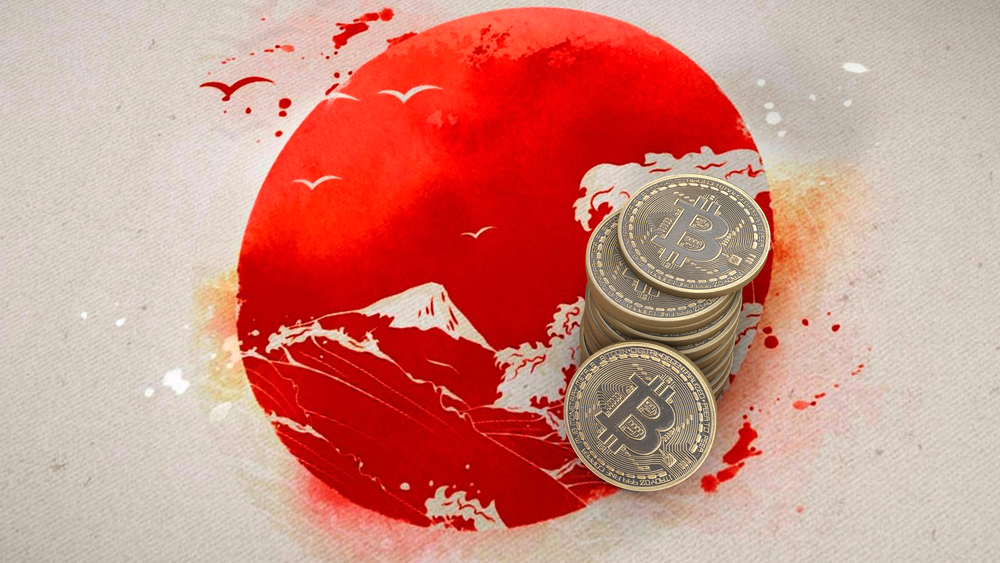The Japanese cryptocurrency market
When many people think of Bitcoin or cryptocurrencies in general, they
mostly think about America, Europe or Singapore. In all the hype, many
people forget about Japan. However, Japan can be considered the home of
Bitcoin. Despite the lack of absolute confirmation as to whether he or she
is or was Japanese, Satoshi Nakamoto is a Japanese name and the home of
bitcoin.
Early last year, the cryptocurrency community was in disarray. Regardless
of the negativity that rocked the headlines with relating to cryptocurrency
and no thanks to the contributions from skeptics, bitcoin remained strong
throughout 2017. It is an achievement that has had great influence from
Japan. As the global community remains the determining factor to any coin,
Japan is regarded, at present, as the heart of bitcoin, being the central
entity to its support.

Contributions Japan has made to the cryptocurrency market
There were concerns about the longevity of bitcoin and the safety of
applying such a uniquely new invention in a volatile industry such as
finance. 2017 is largely regarded as the year that skepticism subsided,
many thanks to the developments in Japan.
While other nations have had ridiculed responses to blockchain and bitcoin
technology, the Financial Services Agency (FSA) in Japan carried out expert
analysis of the technology and came up with fair and clear-cut laws that
regulated the exchanges involving cryptocurrency. It is by far, not a small
matter, as bitcoin exchanges are on the progressive plan aiming at the
adoption of bitcoin into entrepreneurial activities, becoming a key
determinant of what the future holds for virtual currencies.
Despite having such strong foundations in Japan, it has also been the
source of the biggest controversy yet. There are those that claim that Mt.
Gox’s implosion, four years ago, was the worst experience that bitcoin had
to go through. Statistically speaking, close to 650,000 bitcoins, valued at
approximately 437 million US dollars at the time, disappeared when the
transaction was closed unexpectedly. The enterprise was to file for
bankruptcy soon after, impacting the lives of more than 127,000 consumers
from different parts of the world.
At present, the bitcoins that were lost are worth almost nine billion US
dollars. It was an event that prompted the Japanese financial regulators to
take special measures that protected the customers better. It is due to
this disruption that Japan has now grown into one of the leading
forward-thinking nations, regarding authority for virtual currencies and
more so, bitcoin.
The understanding of the FSA pertaining to technology, despite the
inexperienced or unethical participants in the early days, enabled the
establishment of a foundation that the rest of the globe could depend on
when assimilating bitcoin alongside other virtual currencies into their
respective jurisdictions.
Legislative Developments
Volume wise, Japan has become the biggest market for bitcoin trading. It
shows a shift in market dominance that was formerly controlled by China. At
present, Japan is responsible for 59.77% of the international trading
capacity. It is double the volume conducted in the United States that
stands at 25.97%.
The rapid ascent of the Japanese bitcoin trading hotbed need not come as a
surprise due to this pro-currency mindset. The state has also invested
heavily in crypto-asset infrastructure for some time now, through the
legislature. 11 different cryptocurrency exchanges have been endorsed, the
biggest among them being Bitflyer. The exchanges are licenses through an
understandable and legal framework that has made their operations
non-burdensome and painless.
Beginning on the 1st of April 2017, the government of Japan put in place an
amendment influencing the Payment Services Act. They were amendments, with
assistant from BitFlyer, that aided in the establishment of the Virtual
Currency Act, which added tax reforms that have resulted in three key
elements of regulation that have been enacted in 2017.
Legal clarification
The first one pertains to the legal clarification of bitcoin. The Virtual
Currency Act identified and described what is entailed in a virtual
currency, inclusive of clarification of how bitcoin can be regarded as an
asset and that bitcoin ought to be recognized as a means of payment. A
point of note is that this is an act that did not clarify whether bitcoin
is a legal currency, as some of the participants in the market have
stipulated.
Virtual currency regulation
The second law was the virtual currency exchange regulation, where the
Japan Financial Services Authority was given the legal obligation to not
only regulate virtual currencies but issues licenses about virtual currency
exchanges within the country. It was through this means that bitcoin
cemented an established market niche in Japan, where the consumers and
rules of engagement are protected and stipulated. BitFlyer is one of the
first companies to secure a license of this nature in September. It has
become one of Japan’s biggest cryptocurrency exchange companies as a
result.
Tax reforms
The third legislation is the tax reforms. Despite not being an integral
segment of the Virtual Currency Act, these reforms were officiated on the
first on July. They enabled the elimination of a consumption tax that
inhibited foreign investors from acquiring bitcoins in the Japanese market.
It enabled further attraction of external investors as a rippling result.
The expansion of the usage of blockchain and bitcoins
As Japan is making headlines in the frontier of virtual currency exchange,
the rest of the globe has been progressively assimilating similar
regulations and furthered the research with regards to the adaptation of
bitcoin into entrepreneurship activities. BitFlyer has taken the
opportunity to collaborate with governmental organizations to further
information and research focusing on the usability of blockchain technology
and bitcoin.
The research, similar to bitcoin, is publicly available and has no
jurisdictional limits. The company has also gone as far as to research and
develop a globally recognized enterprise blockchain, dubbed Miyabi. It
boasts of a maximum speed of 4,000 transactions in every second and
additionally guarantees finality, Byzantine fault tolerance, immutability,
no single point of failure, not to forget to mention, latency.
These are advances that have not gone unnoticed, with the biggest interbank
clearing network in the country selecting BitFlyer to elaborate the proof
of concept. Miyabi was to be utilized in a manner that elaborates how
blockchain applies to the revolution of the Japanese banking segment,
aiding in the catalysis of a much faster and dependable settlement
platform. It adopted, the biggest banks in the country will interconnect
with the aid of blockchain, demonstrating to its peer nations that
enterprise blockchain can be securely implemented, optimising financial
truncations, developments, and activities.
Volume has been on steady growth in 2017, with the price skyrocketing as
the year went by, but most significantly, the final elements for
institutional investors willing to get involved with bitcoin are close to
completion. Regardless of whether a bitcoin ETF does not secure approval in
the year 2018, the conception of prospective products associated with
bitcoin will enable the provision of more liquidity for easier entry into
the market.
Former just conventional derivatives, large numbers of trading companies
have been created over the period of the last year, enabling the
establishment of family offices, boutique hedge funds as well as extra
nomically huge individual trading companies to gain access to the markets
pertaining to virtual currencies. These developments have enabled
enterprises such as BitFlyer to realize the special opportunity to harness
all the Japanese liquidity and use it to develop these upcoming market
niches and support budding developers.
The future of bitcoin in Japan
Besides the rapid interest in bitcoin speculation and trading, investors in
this country have also embraced the mining of bitcoin. The financial
industry has focused on mining modalities as a source of lucrative profit,
but also as a means of establishing Japan as a dominant force of bitcoin.
Both DMM.com and GMO, that own exchanges, claim to have entered the space
and are finding bitcoin mining locations with low costs of electricity a
challenge.
In addition, the Japanese banks and leadership have started putting
together J-coin, which will be a nationalized cryptocurrency that will be
used together with the Yen. Banks would then apply it to get more customer
data to come up with a digitized and streamlined financial system within
the borders of Japan. All these activities pertaining to cryptocurrency has
made it somewhat of a hotspot for further penetration of the bitcoin
trading market, furthering the domination of blockchain market and bitcoin
trading.
The improved dominant position of Japan has had implications on the price
of Bitcoins. This metamorphosed major bitcoin trading paradise has had an
integral part to the upward trajectory that bitcoin has experienced. In the
past, the price was heavily dependent on the markets located in China. The
renewed ambition to reign the Asian bitcoin market presence has also seen
the growth of the rate of ICOs.
These are set up as fundraising activities that enable new companies to
generate new coins in the form of a new cryptocurrency that can be
exchanged for a bitcoin or ether payment. In comparison to IPOs, these are
much easier to apply and raised 3 billion dollars last year alone. Theses
tokens fall under the Financial Instruments Exchange Act if and when
applied as financial securities. Japan may no longer be the leading
financial hub, but the regulatory framework that is being put in place will
cement its position in the cryptocurrency space.
